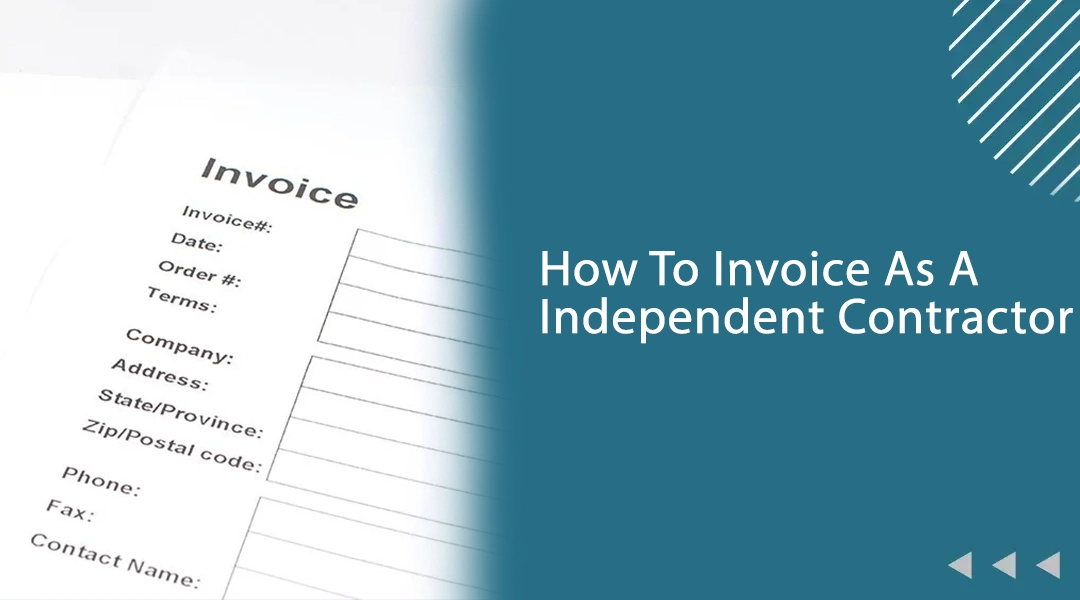As an independent contractor, it is important to have a clear and professional invoicing process in place. Not only will this help you get paid promptly, but it will also establish trust and credibility with your clients.
Table of Contents
Invoices For Independent Contractor
Here are some key considerations when creating invoices for independent contractor:
1. Determine Your Rate
Before you start working with a client, it is important to establish your hourly rate or fixed rate for the project. This will ensure that you and the client are on the same page in terms of payment expectations.
2. Set Payment Terms
In addition to establishing your rate, you should also set payment terms with your client. This can include the payment due date, any late payment fees, and the preferred payment method (e.g. check, bank transfer, PayPal). Clearly communicating these terms will help ensure that you get paid on time and avoid any misunderstandings.
3. Use Invoicing Software
Using invoicing software can make the process of creating and sending invoices much easier. There are many options available, ranging from free tools like Invoice2Go and Wave to more advanced paid options like QuickBooks and Xero.
4. Include All Necessary Information
Your invoices should include all necessary information to ensure that they can be easily processed and paid.
This can include:
- Your name and contact information
- The client’s name and contact information
- The invoice number and date
- A detailed description of the work performed
- The total amount due
- The payment due date
- Any applicable taxes
- Your payment terms
5. Send Invoices Promptly
It is important to send invoices promptly after completing work for a client. This not only helps you get paid faster, but it also helps to establish a good working relationship with the client.
6. Follow Up On Unpaid Invoices
If an invoice for independent contractor is not paid on time, it is important to follow up with the client. This can be done through a simple email or phone call to remind them of the payment due date and to inquire about the status of the payment.
7. Consider Using A Contract
Having a written contract in place can help to protect both you and the client in the event of a dispute. A contract can outline the scope of work, payment terms, and any other important details of the project.
8. Understand Tax Considerations
As an independent contractor, it is important to understand the tax implications of your work. In most cases, you will be responsible for paying your own taxes, rather than having them withheld from your pay like an employee. This means that you may need to set aside a portion of your income to pay taxes at the end of the year.
It is also important to understand any applicable tax deductions that you may be eligible for as a contractor. This can include expenses such as office supplies, business travel, and professional development courses. Keeping track of these deductions can help to lower your tax burden.
9. Use Invoices As A Marketing Tool
Invoices can serve as more than just a means of requesting payment; they can also be used as a marketing tool. Including your logo, website, and social media links on your invoices can help to promote your business and attract new clients.
10. Use A Consistent Format
Using a consistent format for your invoices can help to establish a professional image and make it easier for clients to process payments. This can include using the same font, layout, and branding on all of your invoices.
By following these tips, you can create effective and professional invoices as an independent contractor. A clear and efficient invoicing process will not only help you get paid promptly, but it will also establish trust and credibility with your clients, ultimately helping to grow your business.
11. Offer Multiple Payment Options
In today’s digital age, it is important to offer multiple payment options to your clients. In addition to traditional methods such as checks and bank transfers, consider accepting payment through online platforms like PayPal or Stripe. This can make it easier for clients to pay and can speed up the payment process.
12. Create An Invoice Template
Creating an invoice template can save time and ensure that all necessary information is included on every invoice. This can include your business name and contact information, the client’s name and contact information, the invoice number and date, a detailed description of the work performed, the total amount due, the payment due date, any applicable taxes, and your payment terms. Having a template in place can help to streamline the invoicing process and ensure that all necessary information is included on every invoice.
13. Keep Accurate Records
Accurate record-keeping is crucial for any independent contractor. In addition to keeping track of your income and expenses, it is also important to keep copies of all invoices and receipts for tax purposes. Using invoicing software or a spreadsheet can make it easier to track and organize your financial records.
14. Consider Offering Discounts Or Incentives
Consider offering discounts or incentives to clients who pay their invoices promptly. For example, you could offer a 5% discount for payment within 7 days or a $50 credit towards future work for payment within 3 days. This can help to encourage timely payment and strengthen your working relationship with clients.
How To Bill As A Contractor
As an independent contractor, it’s important to have a clear understanding of how to bill as an independent contractor and calculate your rates. There are a few different ways to approach this:
Hourly Rate
If you charge by the hour, you’ll need to decide on an hourly rate that you feel is fair for the work you do. This can be based on industry standards, your experience level, and the specifics of the project.
Flat Rate
Alternatively, you can charge a flat rate for the work you do. This means you’ll agree on a set price with your client before starting the project, regardless of how many hours it takes you to complete it.
Project Rate
If you prefer, you can also charge a rate based on the specific project you’re working on. This means you’ll come up with a price based on the scope of the project, rather than the amount of time it takes you to complete it.
Independent Contractor Invoice Requirements
As an independent contractor, there are certain legal requirements that you need to be aware of when it comes to invoicing. These can vary depending on your location and the specific nature of your work, but some common requirements include:
Proper Documentation
Be sure to keep thorough records of all of the work you complete for each client, including the dates you worked, the tasks you completed, and your rates. This will make it easier for you to create accurate invoices and can also protect you in the event of any legal disputes.
Tax Implications
As an independent contractor, you are responsible for paying your own taxes. This means that you’ll need to include any applicable taxes on your invoices and make sure to set aside the appropriate amount of money to cover your tax obligations. It’s a good idea to consult with a tax professional to make sure you’re following all of the necessary rules and regulations.
Final Words
In summary, invoicing as an independent contractor requires careful planning and attention to detail. By setting clear rates and payment terms, using invoicing software, offering multiple payment options, and keeping accurate records, you can establish a smooth and professional invoicing process that will help ensure you get paid promptly for your work. By following these tips, you can build trust and credibility with your clients, ultimately helping to grow your business.




